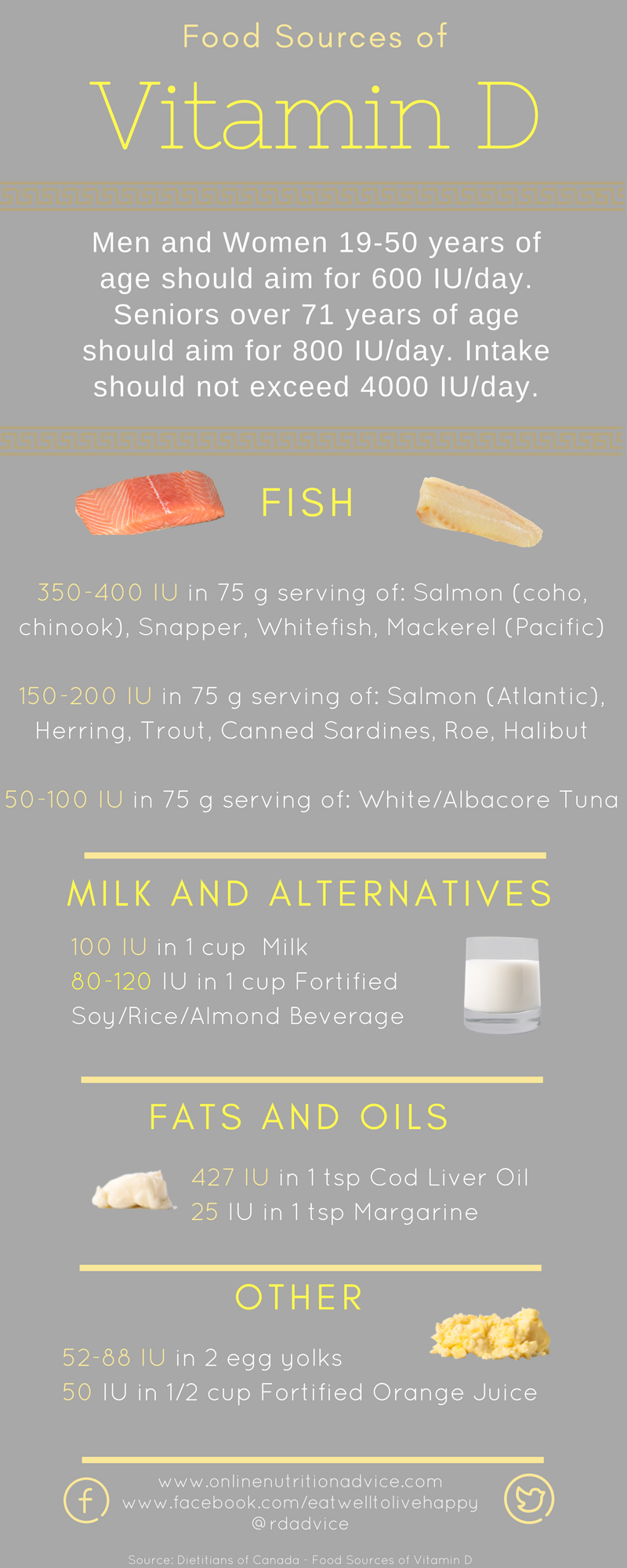Canadians Need to Watch Out!
About one third of Canadians have insufficient vitamin D levels needed for optimal health. One in ten Canadians are vitamin D deficient, which puts children at higher risk of getting rickets (softening of the bones) and adults at risk for osteomalacia (weak bones and bone pain).
Why is Vitamin D Important?
Vitamin D is a fat-soluble vitamin, which means when consumed in large amounts, it can be stored by the body for later use. The importance of vitamin D in maintaining bone health is well established; vitamin D helps our bones absorb calcium and phosphorus, resulting in strong bones and teeth.
It is also known that vitamin D keeps the immune system healthy and reduces the risk of infections. Recent research suggests that vitamin D may also play a role in reducing the risk of certain diseases such as some types of cancer, heart disease, diabetes and multiple sclerosis.
How Much Vitamin D?
The recommended intake for vitamin D between 1 to 70 years of age is 600 IU per day, for both males and females. This number increases to 800 IU per day for seniors 71 years of age and older. The maximum dose for adults (i.e. Upper Intake) is 4000 IU per day, which should not be exceeded unless suggested by a physician.
Who’s at Risk?
Vitamin deficiency is more common amongst the elderly, those following restricted diets (e.g. vegans), and those who live in areas with very little sunlight (e.g. Canada!). Further, certain health conditions which impact the body’s ability to absorb vitamin D (e.g. Crohn’s disease, Celiac disease, Cystic Fibrosis), put one at risk of vitamin D deficiency.
What are the Sources of Vitamin D?
Our bodies synthesize vitamin D from exposure to sunlight. Of course, wearing sunscreen or covering your skin with clothes prevents this from happening. Considering that too much sun exposure puts you at risk for skin cancer, obtaining vitamin D from diet becomes important. Food sources of vitamin D are limited, however, there are many foods that are fortified with vitamin D. The Inforgraphic below highlights some of the food sources of vitamin D.

Is Supplementation Necessary?
Vitamin D supplements are recommended in certain cases. All infants fed with breastmilk should take 400 IU of vitamin D (in form of vitamin D drops) every day. Children and adults who have low levels of vitamin D in their blood need to be supplemented as directed by their doctor or dietitian. If you live in a country were sunlight is limited (for example during fall and winter in Canada), you may also benefit from vitamin D supplementation.
You may have heard that taking excess vitamin D benefits health. Although research is till ongoing, what we currently know is that vitamin D intake should not exceed the upper level intake of 4000IU per day; considering that this vitamin can be store, excessive intake could lead to vitamin D toxicity. So for the time being, make sure you get enough, but not too much!
